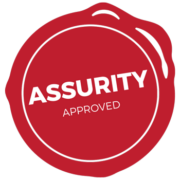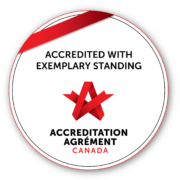Visitor Guidelines – Effective March 18, 2022
The current visitor guidelines outline by the Provincial Health Officer are applied to all buildings at Menno Place, including independent living, assisted living and long-term care.
Key relevant points for visiting at Menno Place:
- All visitors 12 years of age and older must provide proof of full vaccination
- All visitors must be screened, including rapid antigen testing prior to their visit
- Visits may be halted by order of the Medical Health Officer
- Residents may have an essential visitor who is permitted to visit in the event that other categories of visitor are not permitted.
- Every resident is permitted a single designated visitor.
—————–
Definitions
Essential visits are necessarily linked with an essential need that could not be met in the absence of the essential visit. Facility staff will determine if a visit is essential.
An essential visit includes:
• Visits for compassionate reasons including critical illness, palliative care, hospice care, end of life, and medical assistance in dying;
• Visits paramount to the resident’s physical care and mental well-being (e.g., assistance with feeding, mobility, personal care, or communication assistance by designated representatives for persons with disabilities);
• Visits for supported decision-making;
• Existing registered volunteers providing the services described above;
• Visits required to move belongings in/out of a resident’s room; and
• Police, correctional officers, and peace officers accompanying a resident for security reasons.
Essential visits shall be limited to one visitor per resident within the facility at a time, except in the case of
compassionate visits related to end of life. Depending on the needs of a resident, more than one person
may provide essential visits to ensure all needs are met. Essential visits are permitted in a care
home/residence that has an active COVID-19 outbreak, under guidance and direction from the local
medical health officer.
A single designated visitor is the person who a resident has been supported to identity, who may continue
to visit the resident at times when visitation is restricted. Single designated visitors are permitted in a care
home/residence that has an active COVID-19 outbreak, under guidance and direction from the local
medical health officer.
• Single designated visitors should be documented in the resident’s record as part of the
resident’s care planning.
• Operators will support resident requests to identify an alternate single designated visitor
should there be extenuating circumstances such as where the single designated visitor falls ill
or moves.
Social visits are visits other than essential visits or visits from a single designated visitor where the primary
purpose is to provide opportunities for residents to spend time with loved ones to support their social,
spiritual, and emotional wellbeing.
Visitor Appeal and Review Process
To ensure fair and consistent decision making, residents, families and visitors can request an immediate review of any decisions made related to visitor status and shall be provided the ability to speak with an administrator or administrator-on-call or request a further review of a decision through, or facilitated by, the health authority Patient Care Quality Office.
• For further information and guidance, a supplemental document will be available to support operators and health authorities with interpretation to ensure consistent application of the requirements for visitation (see appendix).
• A clear process for complaints/appeals for both publicly funded and private long-term care and seniors’ assisted living sites has been established (see appendix).
Vaccination
In recognition of the added layer of protection provided by the COVID-19 vaccines and given the vulnerability of residents in long-term care and seniors’ assisted living even when fully vaccinated themselves, individuals 12 years of age or older visiting long-term care homes or seniors’ assisted living residences must be fully vaccinated1 against COVID-19 or have a documented medical exemption. Proof of vaccination (e.g., BC Vaccine Card or equivalent), or a copy of the documented medical exemption, is required at the time of entry into the facility. Visitors who do not demonstrate that they are fully vaccinated or have a documented medical exemption will not be able to enter a facility, including passing through the facility to access an outdoor space. Exceptions include for children under 12 years of age and compassionate visits related to end-of life.
Individuals who have received a medical exemption must provide evidence of this by showing a copy of the signed medical exemption form to designated staff prior to entering the facility.
Rapid Antigen Testing
As an additional layer of protection in long-term care, visitors 12 years of age or older must undergo COVID-19 testing in the form of a rapid antigen test. Individuals who test positive will not be permitted to enter the site and will be instructed to self-isolate and refer to the BC Centre for Disease Control (BCCDC) guidance for further direction. Individuals refusing to consent to a rapid antigen test will not be permitted to enter the site.
1 Full vaccination/immunization for COVID-19 is considered as seven days after receiving the full series of a World Health Organization (WHO) approved COVID-19 vaccine or a combination of approved WHO vaccines. Booster doses are not required to be considered fully vaccinated.
Individuals 11 years of age or under are not required to undergo rapid antigen testing. Individuals providing compassionate visits related to end-of-life will also not be required to undergo rapid antigen testing given the critical timeliness and nature of the visit.
Visitors to standalone seniors’ assisted living residences are not required to undergo rapid antigen testing. Available rapid antigen tests can be used on a voluntary basis to test visitors, at the discretion of the operators.
If a seniors’ assisted living residence is part of a campus of care with long-term care where there is a common entrance and/or hallways, visitors (12 years of age or older) to seniors’ assisted living may be required to undergo rapid antigen testing, as described above in the requirements for long-term care homes.
Rapid antigen testing may be conducted at the site or in the community prior to a visit. A rapid antigen test conducted in the community must be done within 48 hours of the visit and communicated as part of the screening process at the site.
In alignment with BCCDC’s guidance, it is recommended that frequent and regular visitors not undergo rapid antigen testing more than three times in one week. Facility operators/screeners should maintain a record of rapid antigen testing of frequent and regular visitors in support of a testing schedule for those individuals. Repeated rapid antigen testing is not required for visitors who leave the facility and return the same day.
Requirements for Visitation
The requirements listed below are intended to support residents, families, staff, administrators, managers, boards, and operators of long-term care homes and seniors’ assisted living residences to safely offer visits and to provide guidance to minimize the risk of COVID-19 transmission in these facilities. The requirements may be updated as required with renewed direction from the Ministry of Health and the Provincial Health Officer.
As part of their ongoing efforts to keep residents safe, operators will complete an initial and then monthly review of their current practices to ensure for themselves, residents, and families that there is full compliance against the current requirements set out below. Any gaps identified should be addressed.
Care homes/residences will make every effort, while maintaining the safety of all residents, visitors, and staff, to ensure adequate time and space for meaningful visits between residents and their visitors. Residents’ differing needs for what is required for meaningful visits should be accounted for in determining appropriate frequency and maximum duration of visits, as well as the number of visitors at one time. Any limits on the frequency, duration and number of visitors or visits should only be to meet resident needs or WorkSafeBC COVID-19 safety and/or communicable disease prevention plans, and in accordance with public health orders and guidance.
Residents should be supported to participate in social outings, including leaving the facility for family visits. It is strongly recommended that individuals taking residents on outings or for overnight visits are fully vaccinated, but proof of vaccination is not required to do so. Residents will not be required to isolate or undergo rapid antigen testing when they return from an outing.
The shared approach to establishing and maintaining the balance of benefits and risks will be informed by the following:
1. Social visits will only be allowed if there is no active COVID-19 outbreak and will cease immediately if an outbreak is declared and the facility goes into active outbreak management. Social visits will resume immediately when the outbreak is declared over. Essential visits and visits from single designated visitors are not restricted during outbreak situations.
2. Visitors should receive advance guidance on the process and guidelines for visits. Operators will identify details about the processes for visiting on their websites and inform residents and visitors in writing (e.g., by email). This will include the requirement for visitors to be fully vaccinated, to show proof of vaccination status (or a documented medical exemption) prior to entry, undergo rapid antigen testing (long-term care facilities and seniors’ assisted living residences co-located with long-term care), and follow the associated requirements for masks while visiting.
3. The maximum number of visitors on-site must also align with any public health orders or guidance related to capacity limits to ensure the safety of all residents, visitors, and staff, as well as resident needs and wellbeing in support of meaningful visits.
4. Whenever possible, residents residing in multi-bed rooms should receive visitors in a separate, designated location.
5. Visits may occur without the requirement to schedule or book in advance. Daily visiting hours may be designated by the facility (except for essential visits) to ensure adequate staffing to support safe visiting practices, provided significant opportunities are made available daily (weekdays and weekends) with visiting options in the morning, afternoon, and evening. Operators may request that visitors schedule their visit in advance to ensure capacity to support the number of visits is available; however, a visit should not be prohibited due to not being scheduled in advance.
6. Visitors 12 years of age and older must provide proof of full vaccination (or a documented medical exemption) and shall be actively screened for signs and symptoms of illness, including COVID-19 prior to entry at every visit. Visitors who do not demonstrate that they are fully vaccinated (or have a documented medical exemption), present with signs or symptoms of illness, or those in self-isolation or quarantine in accordance with public health directives, shall not be permitted to visit. Exceptions to the mandatory vaccination requirement for circumstances related to compassionate visits related to end-of-life will be considered on an individual basis.
7. Visitors 12 years of age and older to long-term care, must undergo rapid testing, in the form of a rapid antigen test. Rapid antigen testing may be conducted at the site or at home prior to the visit. Individuals who test positive will not be permitted to proceed with a visit and will be instructed to self-isolate and refer to BCCDC guidance for further information. Individuals refusing to consent to a rapid antigen test will not be permitted to enter the site. Individuals 11 years of age or under and those providing compassionate visits related to end-of-life are not required to undergo rapid antigen testing. There are no other exceptions to the rapid antigen test requirement for those with a documented medical exemption from vaccination or based on essential/social/single designated visitor status.
8. Large indoor events/gatherings may include resident and staff, but not visitors. Outdoor events/gatherings may include fully vaccinated family/friends who have met the requirements for visitors (e.g., no symptoms of illness, fully vaccinated, rapid antigen test for long-term care). The number of visitors at outdoor social events/gatherings must align with current Provincial Health Officer guidance, meet WorkSafeBC COVID-19 safety or communicable disease prevention plans, and follow appropriate IPC practices to ensure the safety of all staff, residents, and visitors.
9. When visiting with a resident requiring additional precautions (e.g., droplet and contact precautions), all visitors shall be instructed on how to put on and remove any required personal protective equipment (PPE). Visitors are required to limit circulation/movement throughout the facility while visiting. If the visitor is unable to adhere to appropriate precautions, the visitor shall be excluded from visiting.
10. Health authority and facility operators are expected to provide consistent and easy access to information regarding the complaints process and mechanism for appealing visitor-related decisions.
• Facility operators will post on the facility’s public-facing website and at all main entrances to the facility the visitor policy and appeal process including the contact information for the site administrator and will provide a copy to a resident or another person, on request.
• Health authorities will ensure visitation information is available on their main public-facing website, including the Provincial Health Officer’s orders, policy, and process for appeal.
You can read the PDF version of these guidelines here:





